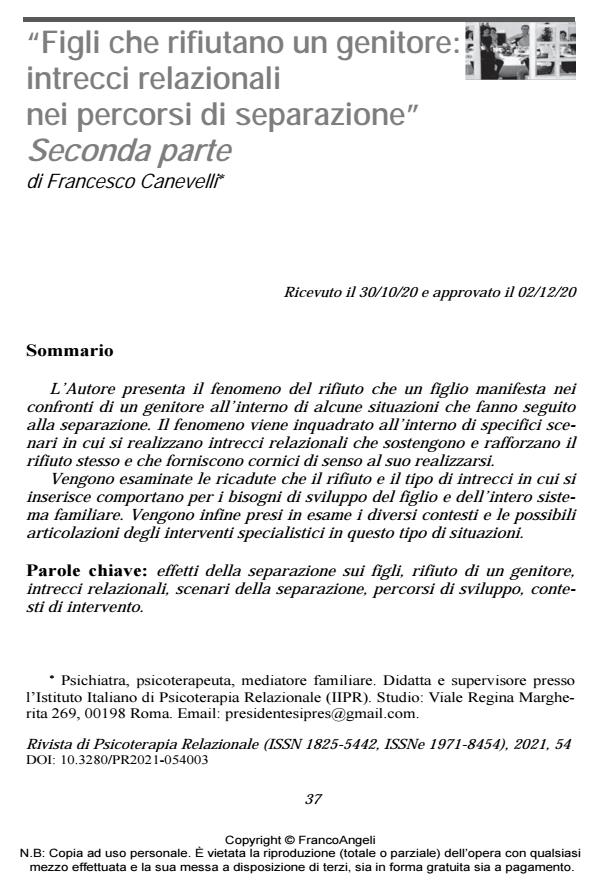"Children who reject a parent: intertwining relationships within separation experiences". Second part
Journal title RIVISTA DI PSICOTERAPIA RELAZIONALE
Author/s Francesco Canevelli
Publishing Year 2022 Issue 2021/54
Language Italian Pages 23 P. 37-59 File size 214 KB
DOI 10.3280/PR2021-054003
DOI is like a bar code for intellectual property: to have more infomation
click here
Below, you can see the article first page
If you want to buy this article in PDF format, you can do it, following the instructions to buy download credits

FrancoAngeli is member of Publishers International Linking Association, Inc (PILA), a not-for-profit association which run the CrossRef service enabling links to and from online scholarly content.
The Author addresses the phenomenon of parental refusal that a child may manifest in some situations following separation. The issue is framed within specific scenarios in which emerging intertwining relationships support and reinforce the refusal itself and provide frames of meaning for its occurrence. The implications that the refusal and the type of relationships in which it entails have on the development needs of the child and on the entire family system are examined. Finally, the various contexts and possible specialist interventions in this type of situation are discussed.
Keywords: Effects of separation on children, refusal of a parent, intertwining relationships, separation scenarios, development paths, contexts of intervention.
Francesco Canevelli, "Figli che rifiutano un genitore: intrecci relazionali nei percorsi di separazione" Seconda parte in "RIVISTA DI PSICOTERAPIA RELAZIONALE " 54/2021, pp 37-59, DOI: 10.3280/PR2021-054003